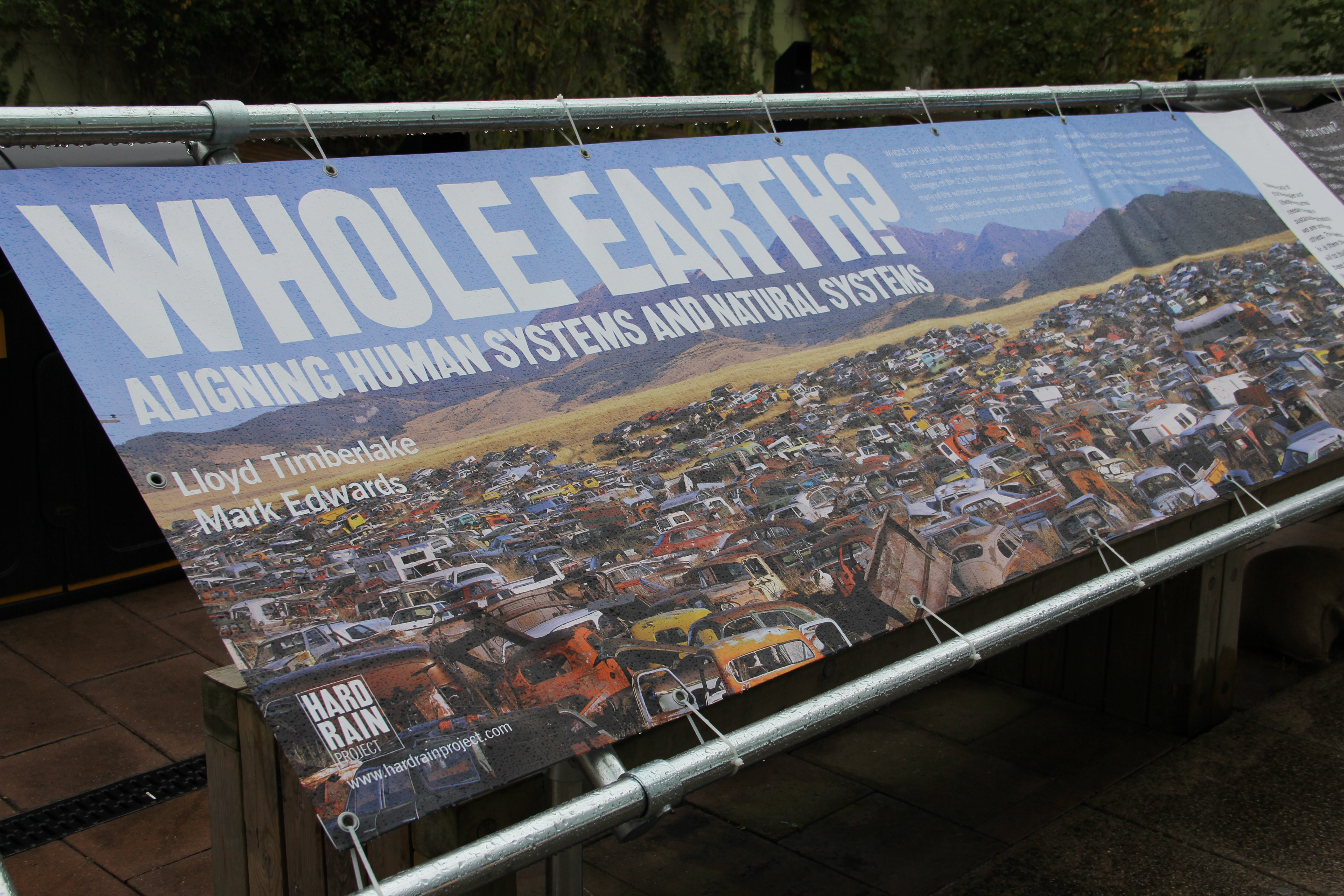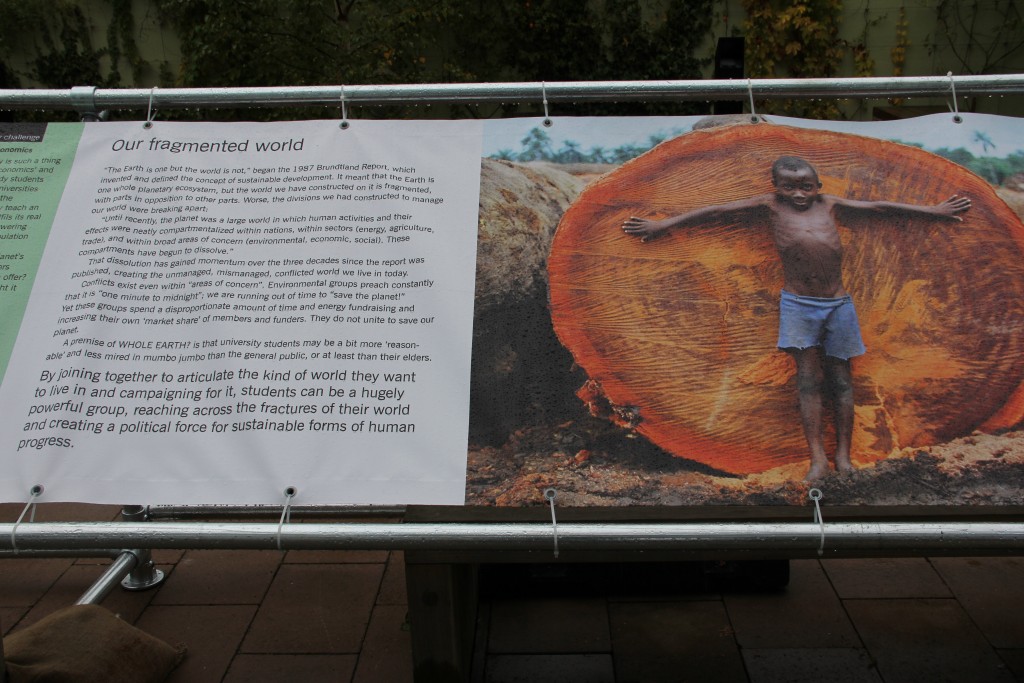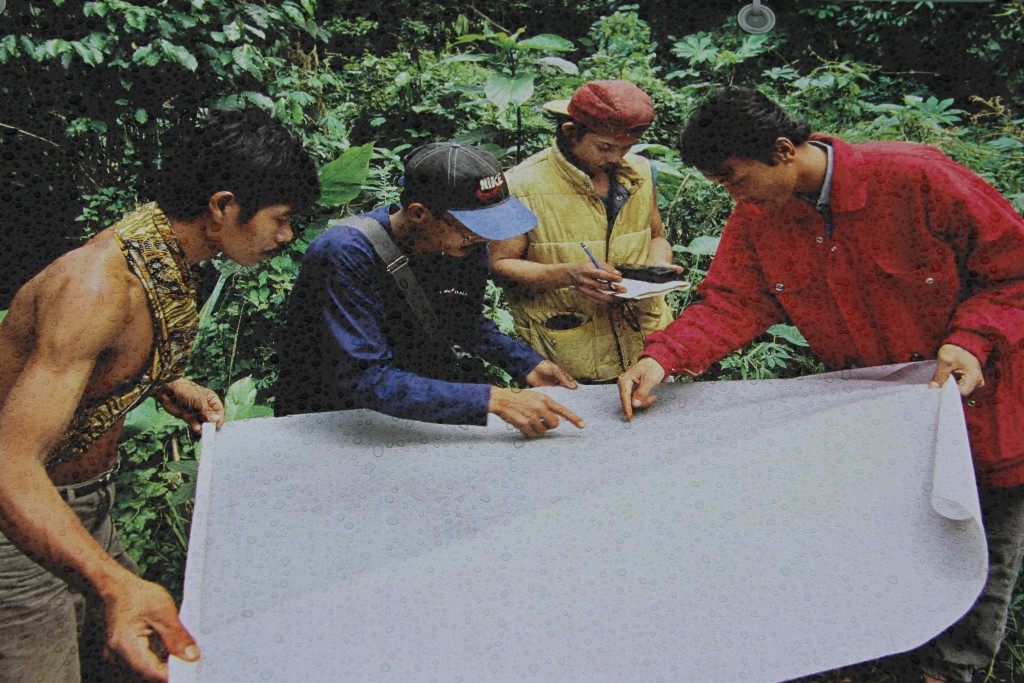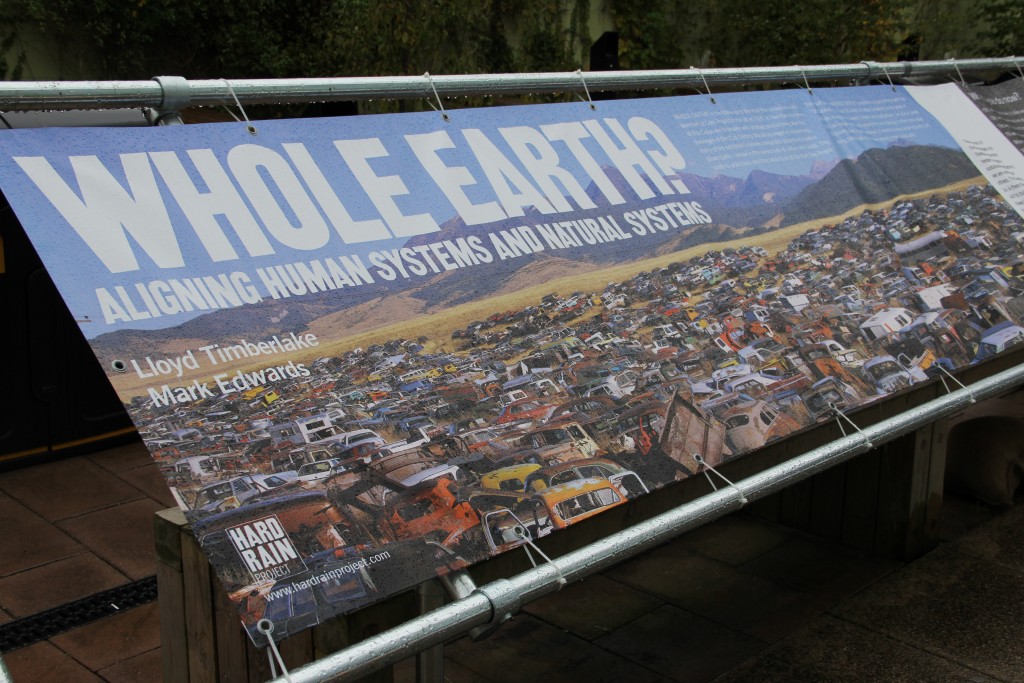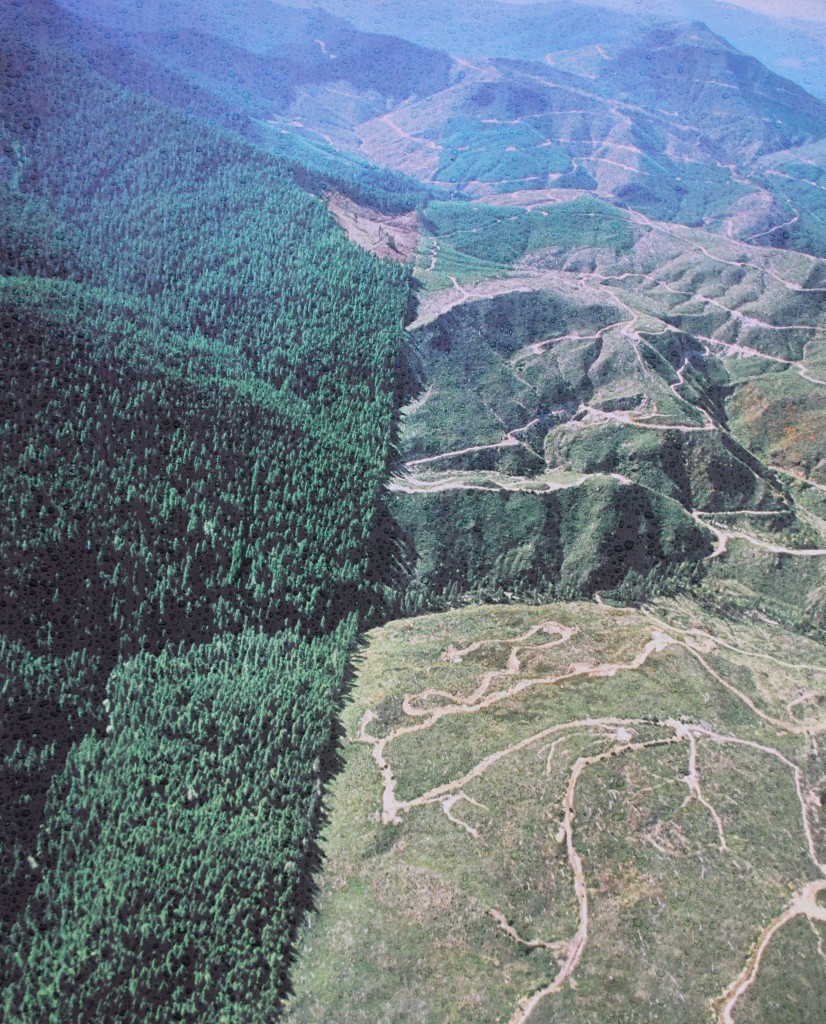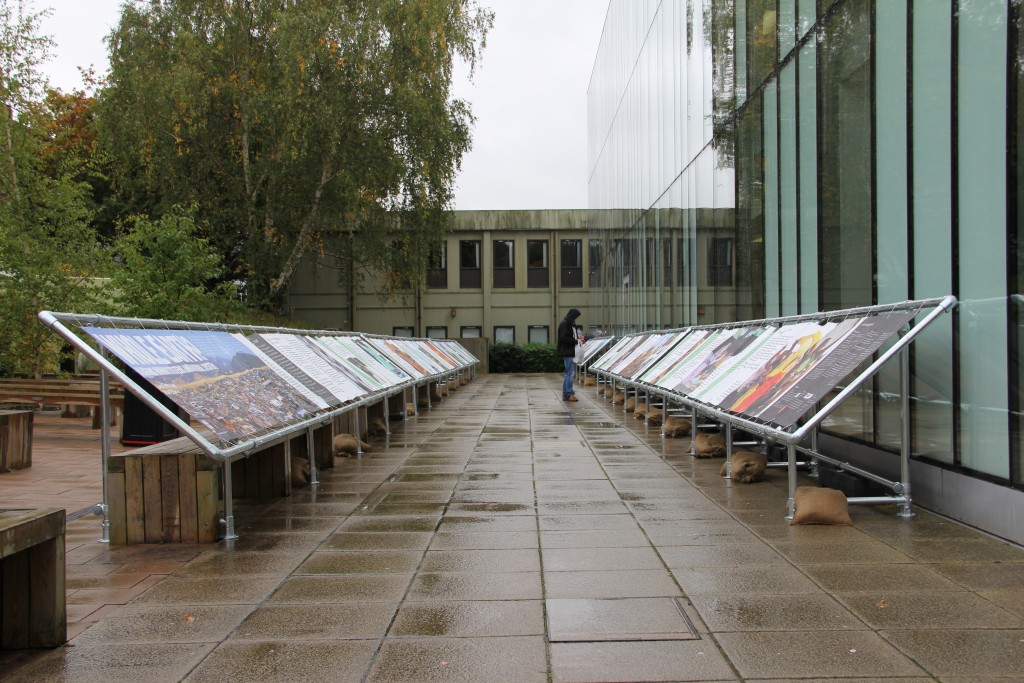‘The Whole Earth?’ exhibition, launched at Kingston Hill yesterday simultaneously with other universities across the UK, encourages students to lead sustainable initiatives.
The exhibition, organised in partnership with the UK National Student Union, showcases a 61m banner of photographs that exposes global issues such as developing world poverty and climate change.
Victoria Hands, director of sustainability at Kingston University, said: “It’s about students getting a voice. This banner aims to engage students and make them feel empowered that they can make a difference about what is happening in the world today.”
Along with the Whole Earth? project, NUS formed the new international alliance of Students Organising for Sustainability (SOS), through which young people can connect, campaign, and draft resolutions to tackle world-wide issues.
NUS Vice President Piers Telemacque said that the project could “bolster the resolve of governments to take the difficult, long-term decisions that underpin security for young people alive today and their children.”
Dr Hands said that SOS serves to challenge governments’ short-term policies on global sustainability which currently offer no security for “the next seven generations.”
Although the project initiates conversations that undermined the status quo, the director of sustainability underlined that it “was not about conflict but about collaboration”.
The banner is not “prescriptive”, but inspires thought, making students reflect on how they could personally act to make their planet a sustainable environment.
Joan Walley, Chair of the House of Commons Environmental Audit Select Committee, said that Whole Earth? “shows how students and universities everywhere can play a leading role in making society more sustainable.”
The project is also a learning resource, as it raises awareness among students about global issues and “gives them evidence to come up with a solution,” according to Maria Xypaki, a curriculum development assistant at KU’s sustainability hub.
Xypaki added: “Through this project, various Kingston graduates’ attributes are developed, such as critical thinking, scenario planning, engaging with ethical issues and providing practical solutions.”
Annie Hughes, a lecturer in geography and environment, flagged the project in her lesson plans and said: “The Whole Earth? exhibition is a fabulous vehicle to engage students with the key issues which challenge our interconnected world.
“It’s thought provoking messages will encourage students to debate their rights and responsibilities in this globalised world and will inspire them to consider their capacity to find workable solutions.”
Fatima Annan-Diab, from the faculty of business and law, was also enthusiastic about including the exhibition in the school’s curriculum. “The launch of the Whole Earth project will shift the debate further and strengthen the case for sustainability as a driver for innovation, technology development and a new business model,” she said.

